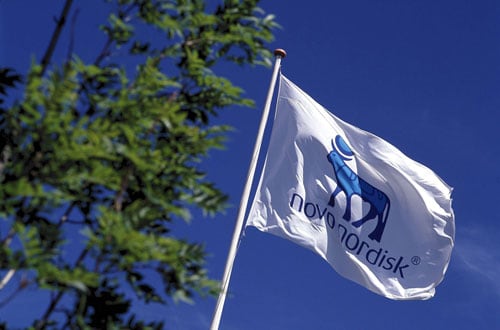
After a delay of more than two years, Novo Nordisk has at last been granted approval in the US for Tresiba and Ryzodeg, two drugs expected to consolidate its position as the leading diabetes company.
Long-acting basal insulin Tresiba (insulin degludec) and combination drug Ryzodeg (insulin degludec and insulin aspart) will now be able to compete head-to-head in the market with Sanofi’s $7bn-a-year blockbuster Lantus (insulin glargine).
The FDA rejected Tresiba in 2013 on concerns about its safety, with the agency asking for a cardiovascular outcomes trial to be completed before it could be considered for approval. Earlier this year however Novo Nordisk decided to refile Tresiba and Ryzodeg on the strength of interim data from the outcomes trial, called DEVOTE.
The delay has cost Novo Nordisk dearly. Tresiba had been expected to quickly ramp up sales to $3bn or more a year, but the loss of the lucrative US market meant that the drug – along with Ryzodeg and Xultophy (insulin degludec/liraglutide) – achieved sales of just DKK601m ($90m) in the first six months of the year.
With a launch in the US now expected in the first quarter of 2016, the Danish company has a chance to get the franchise back on course, although it will have a tougher time now than it would have done in 2013.
The basal insulin market has undergone some fairly big changes, with the first biosimilars of Lantus now rolling out onto the market, while Sanofi has also had time to launch its Lantus follow-up Toujeo (insulin glargine). However, there was some good news for Novo Nordisk when it emerged Eli Lilly had delayed filings for its long-acting insulin peglispro candidate after a safety signal was seen in trials.
While Tresiba and Ryzodeg may not reach their earlier sales estimates, the approval is also significant for Novo Nordisk as it clears a path for approval of Xultophy in the US, which has been tipped as a potential $1bn product in its own right.
Once-weekly GLP-1
Meanwhile, there was more good news for Novo Nordisk after it reported a second successful phase III trial of semaglutide, a glucagon-like peptide-1 (GLP-1) agonist that can be given by subcutaneous just once a week while most rivals – including its own Victoza (liraglutide) product – are dosed every day.
The results of the SUSTAIN3 trial showed that 1mg semaglutide was more effective than AstraZeneca’s Bydureon 2mg (exenatide) – which is also dosed once a week – at controlling blood glucose levels. Two-thirds of semaglutide-treated patients achieved blood glucose targets compared to 40% of the Bydureon group.




